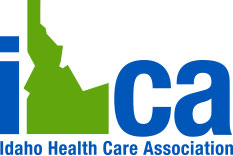The Bureau of Facility Standards licenses and certifies health care providers/suppliers following state and federal regulatory requirements, as applicable. Providers include: Intermediate Care Facilities for Persons with Intellectual Disabilities (ICF/ID), Skilled Nursing Facilities (SNF), ambulatory surgery centers, End Stage Renal Disease centers (dialysis), home health agencies, hospices, hospitals, outpatient physical therapy/outpatient speech pathology centers, and rural health clinics (Idaho Department of Health and Welfare).
Intermediate Care Facilities for Persons with Intellectual Disabilities (ICF/ID) are designed and function to meet needs of four or more individuals with developmental disabilities or related conditions who require twenty-four hour active treatment services. The primary purpose of the facility is to provide for health and rehabilitative needs of the individuals residing at the facility in an effort to: maximize the individual’s independence, and maintain functioning to the maximum extent possible in the presence of degenerative conditions (Idaho Department of Health and Welfare).
A Long Term Care/Skilled Nursing Facility’s design and function is to meet the health needs of two or more elderly or disabled individuals who, at a minimum, require inpatient care, and services, for twenty-four or more consecutive hours. Inpatient care is necessary for unstable or chronic health problems requiring: Daily professional nursing supervision and licensed nursing care; Restorative; Rehabilitative care; Assistance in meeting daily living needs. Medical supervision is necessary on a regular, but not daily, basis. Payment Source Types: Medicare, Medicaid, and private pay (Idaho Department of Health and Welfare).
To learn more about the programs supervised by the Bureau of Facility Standards, please visit Facility Standards .
State Only Programs consist of entities which are state licensed, or state certified, to provide care and services to a designated population. In most cases, payment source is either private pay or Medicaid (Idaho Department of Health and Welfare).
Residential Care or Assisted Living Facilities for the elderly/seniors include any facility or residence, however named, operated on either a profit or non-profit basis for the purpose of providing necessary supervision, personal assistance, meals, and lodging to three or more elderly adults not related to the owner (Idaho Department of Health and Welfare).
Certified Family Homes provide a safe, family-style living environment for adults who need some assistance with the activities of daily living, but do not require a more restrictive institutional setting. Usually there are one or two adult residents in a Certified Family Home. Each resident has a tailored care plan designed to meet their individual needs and to ensure they have the opportunity to participate in community activities. The Certified Family Home is operated by a provider who has received the appropriate training and demonstrated the knowledge and experience to provide safe and effective services to the residents. There are over 1800 Certified Family Homes in communities across the state (Idaho Department of Health and Welfare).
Developmental Disabilities Agencies are required to provide or make available the following services: developmental therapy, home- and community-based services, occupational therapy, physical therapy, psychotherapy, and speech and hearing therapy (Idaho Department of Health and Welfare).
Residential Habilitation Agencies are services consisting of an integrated array of individually-tailored services and supports furnished to an eligible participant which are designed to assist them to reside successfully in their own homes, with their families, or alternate family home (IDAPA 16.04.17 – Rules Governing Residential Habilitation Agencies).
To learn more about State-Only Licensed/Certified Programs, please visit State-Only Programs.
